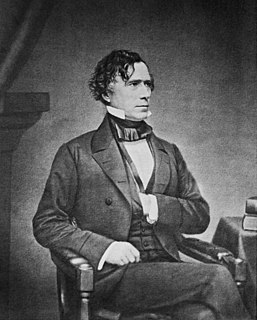A Quote by Watchman Nee
Most soulish believers assume an attitude of self-righteousness, though often it is scarcely detectable. They hold tenaciously to their minute opinions we ought to lay aside the small differences and pursue the common objective.
Related Quotes
The aim of every political Constitution, is or ought to be first to obtain for rulers men who possess most wisdom to discern, and most virtue to pursue, the common good of society; and in the next place, to take the most effectual precautions for keeping them virtuous whilst they continue to hold their public trust.
Let us not be blind to our differences-but let us also direct attention to our common interests and to the means by which those differences can be resolved. And if we cannot end our differences, at least we can help make the world safe for diversity. For, in the final analysis, our most common link is that we all inhabit this small planet. We all breathe the same air. We all cherish our children's future. And we are all mortal.
The victims of ennui paralyze all the grosser feelings by excess, and torpify all the finer by disuse and inactivity. Disgusted with this world, and indifferent about another, they at last lay violent hands upon themselves, and assume no small credit for the sang froid with which they meet death. But, alas! such beings can scarcely be said to die, for they have never truly lived.
A Positive Mental Attitude is the right mental attitude. What is the right mental attitude? It is most often comprised of the "plus" characteristics symbolized by such words as faith, integrity, hope, optimism, courage, initiative, generosity, tolerance, tact, kindliness, and good common sense. A person with positive mental attitude aims for high goals and constantly strives to achieve them.
We often think more highly of ourselves than we ought to, and it's easy to judge others and be critical of their weaknesses and shortcomings. But this self-righteous attitude is a sin that we can be blinded to because we're so focused on what the other person did wrong. The reality is this attitude is worse than the wrong behavior we're judging.
The differences between religions are only differences involving the pathways that lead toward the practice of directly experiencing higher levels of perception and understanding. All religions are paths to a metaphorical mountain-top variously named Wisdom, enlightenment, self-realization, the kingdom of heaven, righteousness, etc. Differences that lead to violence and persecution are based on a corrupted relationship to the teachings and practices of religion.
A crowd thinks in images, and the image itself calls up a series of other images, having no logical connection with the first...A crowd scarcely distinguishes between the subjective and the objective. It accepts as real the images invoked in its mind, though they most often have only a very distant relation with the observed facts....Crowds being only capable of thinking in images are only to be impressed by images.

































